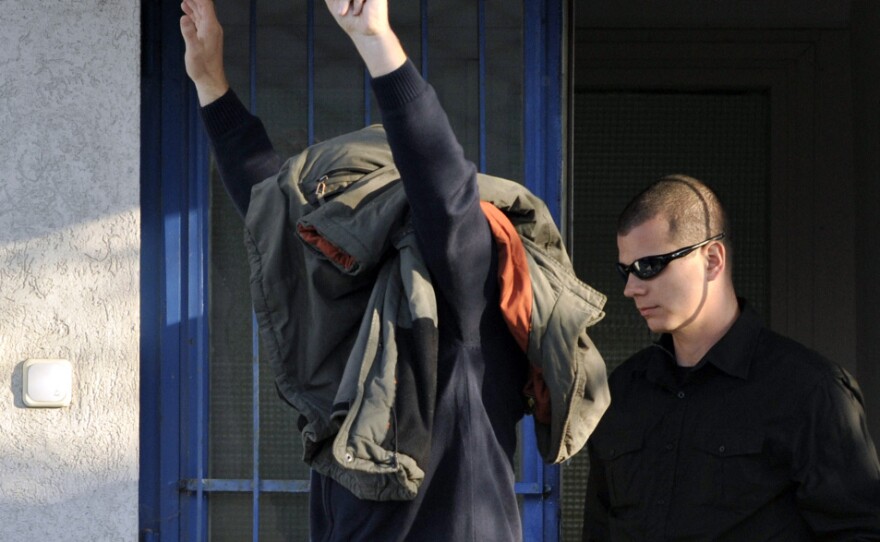Prosecutors do not have enough evidence to prove the head of a metals company was personally responsible for contributing to the leak of 200 million gallons of caustic red waste from a cracked reservoir, a judge in western Hungary has found.
Zoltan Bakonyi was ordered released from police custody during a closed court hearing Wednesday. Afterward, Bakonyi's lawyer, Janos Banati, said the judge found prosecutors couldn't substantiate their argument that Bakonyi did not sufficiently prepare emergency warning and rescue plans in case of accidents like the sludge spill.
But Lukas Reijnders, an environmental science professor at the University of Amsterdam, said EU law requiring proper treatment and storage of mining waste clearly had not been followed, despite reports that the facility recently passed a safety inspection.
Reijnders said he hopes the accident is a wakeup call to the many European Union governments failing to enforce safety standards.
"It's very high cost to sanitize the situation, so I think they've learned a lesson and I hope that they will act on that," he said.
EU environment ministers will discuss the spill's impact at a meeting Thursday in Luxembourg.
The judge's decision Wednesday was sure to embitter hundreds of villagers who blame the management of MAL Rt. for the deaths of nine people, the hundreds of homes left uninhabitable and the poisoning of local waterways. Some 184 million gallons of caustic sludge and water burst from a storage pool of a metals plant Oct. 4, inundating three western Hungarian towns and spilling into the Danube.
"Life won't be returning to normal for a very very long time," said Devecser Mayor Tamas Toldi, whose town was one those swamped by the toxic slurry.
In a bit of good news, authorities said that cracks in the wall of the broken reservoir appear not to have grown wider, calming some fears that further collapse would release a second flood of sludge.
One village remained evacuated Wednesday and residents in Devecser were ready to leave on short notice. But Toldi said he hoped the state of alert could be called off later in the day once a protective wall in neighboring Kolontar meant to contain any new spill had been completed.
The National Disaster Management Directorate, meanwhile, said that the death toll had risen to nine after an elderly man died overnight. Of the more than 100 hurt by the caustic slurry, around 50 people remained hospitalized.
Banati said prosecutors were preparing to appeal Wednesday's ruling. He said the decision reflected defense arguments that the company had emergency plans that had been approved by government authorities and that did not need updating when Bakonyi took over two years ago. He also said he knew of no incriminating testimony against Bakonyi from employees of his firm.
Bakonyi is the managing director of MAL Rt., or the Hungarian Aluminum Production and Trade Company, which owned the reservoir, part of the Ajkai Timfoldgyar plant in Ajka, 100 miles southwest of Budapest.
The red sludge that spilled after a part of the reservoir wall partially collapsed is a highly caustic byproduct of alumina production which is used to make aluminum.
The government took over the company on Tuesday, and said the Ajka subsidiary of MAL could restart production by the end of the week under its supervision.
While some local waterways were declared dead in the wake of the spill, the Danube appeared to be suffering little immediate ecological damage due to its massive volume.
Teri Schultz contributed to this report, which contains material from The Associated Press.
Copyright 2022 NPR. To see more, visit https://www.npr.org. 9(MDAzMjM2NDYzMDEyMzc1Njk5NjAxNzY3OQ001))






